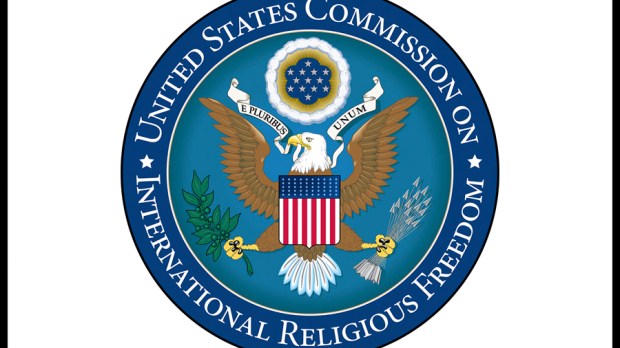The United States Commission on International Religious Freedom, which has documented many abuses against Christians and other faith populations around the world, could be disbanded in a month if Congress does not act soon to extend its mandate.
And if it does survive, many fear, the commission could be so changed as to lose much of its effectiveness.
An Aug. 24 letter from the International Religious Freedom Roundtable, signed by almost 100 experts, was sent to the chairman of the Senate Foreign Relations Committee in support of S. 1798, one version of a reauthorization bill.
“While there is very little we agree on theologically, or politically, we all agree on the importance of international religious freedom,” the letter said. “It strengthens cultures and provides the foundation for stable democracies and their components, including civil society, economic growth, and social harmony. As such, it is also the ultimate counter-terrorism weapon, pre-emptively undermining religious extremism.”
World magazine reported that S. 1798, introduced in July by Sen. Marco Rubio (R-Fla.), would “bolster USCIRF operations, allow it to designate non-state actors like ISIS and Boko Haram ‘countries of particular concern,’ and mandate training for all foreign service officers.”
Sen. Richard Durbin, (D-Ill.) introduced a competing bill, S. 1860, the Further Independence of Religion for Security and Tolerance Freedom Act of 2015, also in July. But the letter signers believe S. 1798 is “better suited to advance freedom of religion or belief.
“While S. 1860 includes significant refugee-related provisions that many of us support, some of these provisions are part of an ongoing debate which is unlikely to be resolved prior to the rapidly-approaching expiration of USCIRF’s current authorization,” the letter said. “As such, we believe consideration of such provisions should be delinked from the current reauthorization process. Additionally, many of the USCIRF-related provisions in S. 1860 are deeply concerning and could potentially undermine USCIRF’s vital work.”
World reported that S. 1860 would keep USCIRF going for another two years and would significantly alter the commission, subjecting it to the Freedom of Information Act, removing the requirement of a bipartisan commission vote for staffing decisions, rolling back commissioners’ information-gathering ability, and makiing USCIRF’s annual report a response to the State Department’s international religious freedom report—killing its advisory role.
“Many of the USCIRF-related provisions in S. 1860 are deeply concerning and could potentially undermine USCIRF’s vital work,” the religious freedom advocates wrote.
USCIRF was born as part of the 1998 International Religious Freedom Act.
The letter, addressed to Sens. Bob Corker and Ben Cardin, chairman and ranking member, respectively, of the Senate Foreign Relations Committee, was signed by scholars, religious leaders, human rights advocates and practitioners, including Nina Shea, a former USCIRF commissioner who now directs the Center for Religious Freedom at the Hudson Institute; Russell Moore, president of the Southern Baptist Ethics & Religious Liberty Commission; J. Michael Smith, president of the Home School Legal Defense Association, and Mark Tooley, president of the Institute on Religion and Democracy.
Says World’s J.C. Derrick:
Durbin partnered with Reps Keith Ellison, D-Minn., and David Cicilline, D-R.I., to get his legislation introduced in the House, but it has won no additional support. Earlier this year Reps. Chris Smith, R-N.J., and Anna Eshoo, D-Calif., introduced bipartisan legislation similar to Rubio’s, and it currently has 17 Democrat and 89 Republican cosponsors. Last year a similar bill passed the House unanimously but stalled in the Senate. Last month, another bipartisan group of thought leaders urged Congress to pass the Smith-Eshoo bill and “develop a national strategy addressing the tragic global crisis in religious freedom.” The letter’s authors included former USCIRF commissioners Imam Talal Eid and Leonard Leo, former Sen. Joe Lieberman, Baylor University chancellor Ken Starr, former Clinton administration adviser William Galston, Washington archbishop Donald Wuerl, pastor Rick Warren, author Eric Metaxas, and Harvard Law School’s Alan Dershowitz and Mary Ann Glendon (who also is a current USCIRF commissioner). “This is not a partisan or party issue,” wrote the leaders, who cited Pew Research findings that more than three-fourths of the world’s population live in countries where religious restrictions are severe. “Of all people, we Americans should be united in defending this human right.”

